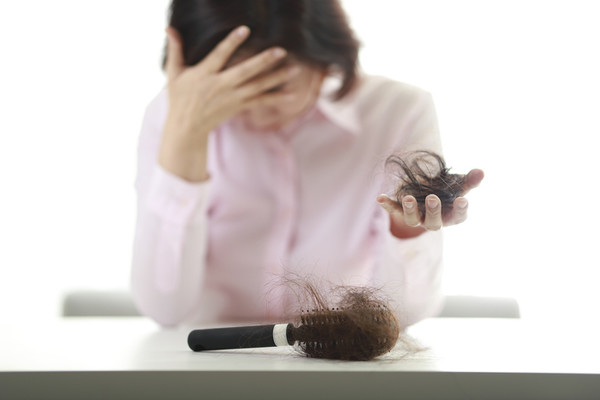About half of the patients suffering from hair loss in Korea are women.

According to data by the National Health Insurance Service (NHIS) submitted to Rep. Kim Won-i of the Democratic Party of Korea, the number of people who received treatment for pathologic hair loss in 2021 was 244,609, of which 107,764, or 44.2 percent, were women.
However, as female hair loss patients tend to go to the hospital only after symptoms have progressed considerably, health experts estimate that the number of actual female hair loss patients is much higher than the number provided by NHIS.
Unlike male hair loss, where most patients show an M-shaped hair loss, which allows symptoms to be recognized quickly, female hair loss is harder to recognize as symptoms in most female patients start with the thinning of hair on the top of the head.
"Many patients visit the hospital only when the scalp around the crown of the head is clearly visible," said a 63-year-old dermatologist who runs a dermatology clinic in Gyeonggi Province. "However, compared to men who have a wide range of treatment options, treatment options for women are limited to only minoxidil and Ell-Cranell.”
According to the physician, oral treatments for hair loss, such as Propecia, which men commonly take, are difficult to be prescribed for women.
“Notably, women of childbearing age cannot take Propecia as taking the drug can lead to childbirth to a deformed child,” the dermatologist said. “Even when prescribing minoxidil, the only therapeutic agent, women patients can only receive a concentration of 3 percent or less as a higher concentration can cause female hirsutism, which can cause hair to grow on the chin, around the lips, and on the chest.”
However, it is hard for patients to see a noticeable efficacy when using a low concentration of minoxidil, with only two out of 10 people using a minoxidil concentration of 3 percent or less seeing efficacy, he added.
With such high unmet medical needs, some pharmaceutical companies have started researching a new alternative treatment for female hair loss patients.
Notably, Chong Kun Dang recently received approval from the Ministry of Food and Drug Safety to conduct a phase 2 clinical trial for using CKD-498 in treating female hair loss patients, which is the only clinical trial targeting hair loss in women patients.
The company plans to compare and evaluate the efficacy and safety of CKD-498 in 120 female androgenetic hair loss patients at Seoul National University Bundang Hospital.
However, not much else is known about the drug's development as Chong Kun Dang is keeping the trial information under lock.
"There has always been an unmet need for female hair loss patients," a company official said. "It is difficult to disclose details at this stage."
Industry sources say that the cloak-and-dagger approach seems to be because the trial is currently the only study attempted in an unexplored area.
"It's no secret that a number of Korean pharmaceutical companies are reviewing the development of drugs related to female hair loss," an industry watcher said. "Therefore, it will be difficult for Chong Kun Dang to disclose clinical information as there are a lot of possible competitors."

